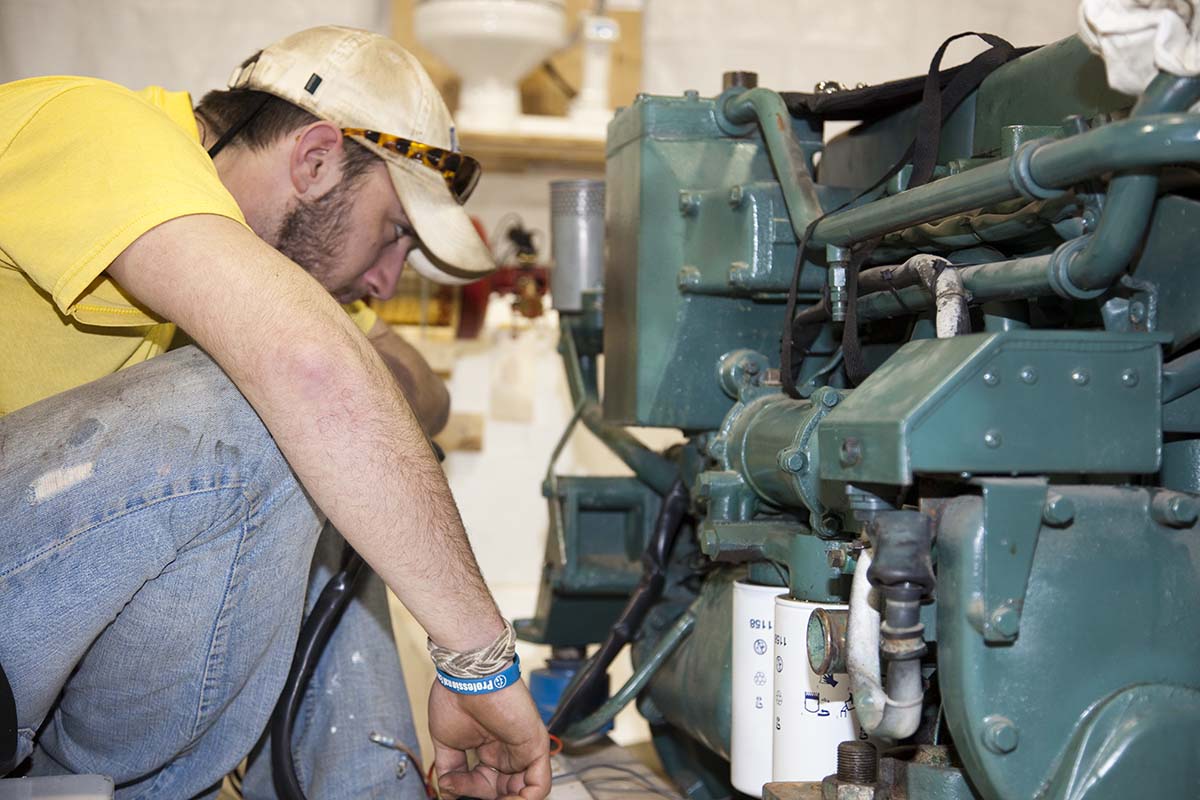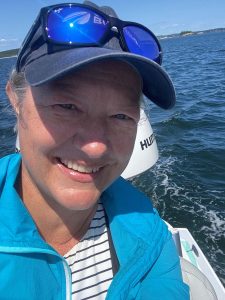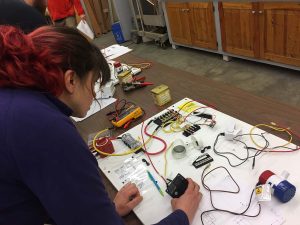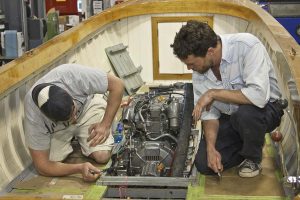
ABYC Marine Trades Accreditation Program: Matching Student Training to Industry Need
Published on November 13, 2022Worker shortages may be viewed as a new phenomenon among many businesses and industries that are feeling the effects of jobs that remain unfilled, but for the marine industry, this is nothing new. There has been a glut of technicians who can fill the roles in boat building and engine repair, manufacturing, and more for many years and efforts continue to find and build a workforce to keep up with the increasing demand for boats.
Behind one effort to train new technicians is the American Boat and Yacht Council (ABYC) Foundation’s Marine Trades Accreditation Program (MTAP). Leading the way for this effort is newly hired MTAP director, Sarah Devlin. While MTAP was just launched in 2022, Devlin explains that the concept for it began in the mid-2000s. At that time, ABYC created the Marine League of Schools to connect the marine industry with schools that were teaching a quality curriculum and could be considered hiring resources for future technicians. It was an industry-focused designation, and it became clear to ABYC and the Foundation that they should help schools get up to speed with the core competencies that employers need.

With a long career in marine training and education, Sarah Devlin is very aware of worker shortages and ready to work hard to fill those gaps.
Review and Support For Better Training Programs
MTAP fulfills that void, providing secondary and post-secondary school marine service technology programs with a third-party review and support that helps set the standard for the quality of these programs and better assure what students learn matches what the industry requires. “MTAP is a method for employers to identify institutions with marine service technology programs that are cranking out graduates with the skills they need and is also a resource for the school, providing access to industry-specific training and professional development for instructors,” Devlin said.
Any school already offering marine trades training can apply to become an ABYC Foundation Affiliated School, which will enable the school’s instructors to network with other programs across the country, stay up to date on trends and standards, and take advantage of unique discounts and opportunities. MTAP not only recognizes established programs but also offers the tools to create new programs. The ABYC Education Department has created a Marine Service Technology curriculum with textbooks and workbooks that schools can purchase. This can be a solution for some start-up programs, but schools do not need to use the ABYC curriculum to receive the MTAP designation.
To become accredited, schools must be authorized by their state or governing body to operate as an educational institution, must adhere to federal and state anti-discriminatory and civil rights statutes, and meet all federal, state, and local health and safety standards. The first step is to send in an application. A complete review of the curriculum is completed as well as an onsite visit and often onsite consultation. The MTAP Accreditation Commission meets with the school leadership and any relevant academic leaders, interviews instructors and students, tours the facilities, observes classes, and checks safety protocols. Any deficiencies that are found, such as a lack of tools or PPE, untrained instructors, or not adhering to core elements of the curriculum, will be highlighted and the schools are given a chance to correct the deficiency. An MTAP accreditation is valid for five years.
A Role for Industry
The need for skilled workers is real. Industries across the board are challenged to find workers and then train and retain people who can do the work. “If anything, the past few years have taught us that we need to make sure we are offering the jobs and the work experiences that people want. My goal with MTAP is to get the right people through the right doors,” Devlin said.

There are nearly 12 million registered boats in the United States and demand for upgrades and repairs is steadily growing. But there is often a disconnect between what technicians have learned and what services are needed. As the industry shifts with the times, introducing new concepts in boat design, electric engines, and more eco-friendly components, schools are challenged to keep up with the latest innovations and needed skills. MTAP helps assure training programs are in step with modern technologies.
Devlin said having industry support of MTAP will go a long way in developing quality educational programs. She wants to see the marine industry come together with all the various training and certification programs to build awareness and have a better way to disseminate resources. “The marina, boatyard, dealer, and manufacturer may have no idea that the trade school up the street can introduce a marine service technology program that will improve their business. We can provide information and data to start a conversation between industry and that school,” she said.
She further emphasized the importance of having industry join school advisory groups and help them source instructors, parts and consumables, and all the tools needed for a successful training program. “This is all local. If you are in the offshore cruising market, a manufacturing hot spot, an area known for yacht repair or marina service—you can bring all of this to the schools in your area. Schools want their students to graduate and be successful and you want qualified workers. Work with the schools to make this all happen,” Devlin said.
Looking Ahead
ABYC is working hard to make the MTAP logo a sign of a career-starting program for students and a source for potential hires for local businesses. A school wants to have high employment rates for their graduates, and MTAP schools can tout that not only is their program accredited by an organization that writes the standards for marine service technicians, but the school also has a direct connection to companies that are hiring. That’s a strong selling point to not only students, but also to parents who, despite a changing perspective, may be wary of their child going into the trades.

The work ahead is challenging but Devin is ready to jump head-first into her new role. She’s been involved with training and workforce development through her career as a founding member of the Marine Industry Training and Education Committee, seminar manager for IMBC (now the AMI Conference), the Commercial Marine Expo, and for IBEX, most recently as the show’s Education Director. “I care about education and training in the industry and I am very much aware of the worker shortage. Rather than just talk about it, I really wanted to do something about it,” she said. Devlin is already proving she does more than just talk the talk.
| Categories | |
| Tags |





